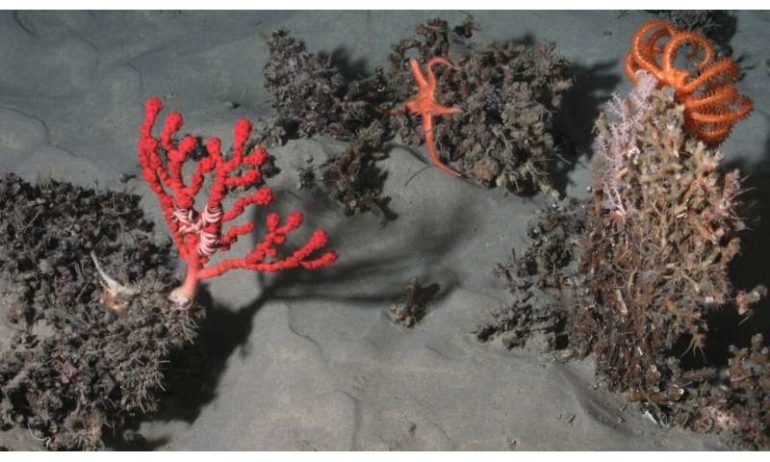Researchers working with the ATLAS project have reported to the press that they have found 12 new species of sea creatures new to science. The EU funded undersea project has been ongoing for five years and has carried out 45 research expeditions that involved the work of over 80 scientists and student volunteers.
The ATLAS project was begun five years ago and grew into the largest oceanic enterprise ever undertaken. Its mission was to study the North Atlantic—the water, the seafloor, currents and most particularly the creatures that live there. Researchers from 13 countries took part in the project, spanning a wide range of interests from physics to ocean chemistry to biology. As the project carried on, researchers began to take a hard look at changes that are taking place in the ocean as part of global warning.
The team’s original goal was to map the deep waters off the coasts of Europe, the U.S. and Canada and as often as possible, areas farther out in international waters—it was to be what the team described as “maritime spatial planning.” As it turned out, the researchers wound up focusing most of their effort on 12 specific locations in a deep part of the Atlantic Ocean. Most of the research was conducted using underwater robots. In addition to the 12 new species the team found, they also discovered 35 species living in areas where they were not previously known to reside. To date, the effort has resulted in 113 papers published in peer-reviewed journals; more are expected in the near future. At the project’s conclusion, members of the team reported to the press that despite their long effort, more is still known about the surface of the Moon and Mars than is known about the deep oceans here on Earth.
Among the findings by the team was a new kind of coral, a sedentary animal that resembled moss, and another that also resembled moss. They also learned more about the impact greenhouse gas emissions are having on the world’s oceans. Prior research has shown that in addition to rising temperatures due to global warming, the gasses also increase ocean acidity. The researchers with ATLAS found that such acidification was attacking the foundations of coral reefs and predict many deep-sea habitats will collapse over the next century. They also found that the Atlantic Ocean’s currents have been slowing, resulting in changing weather patterns and further disruptions to sensitive ecosystems.
Ocean acidification risks deep-sea reef collapse
2020 Science X Network
Citation:
ATLAS project finds 12 new species of sea creatures (2020, December 30)
retrieved 30 December 2020
from https://phys.org/news/2020-12-atlas-species-sea-creatures.html
This document is subject to copyright. Apart from any fair dealing for the purpose of private study or research, no
part may be reproduced without the written permission. The content is provided for information purposes only.



